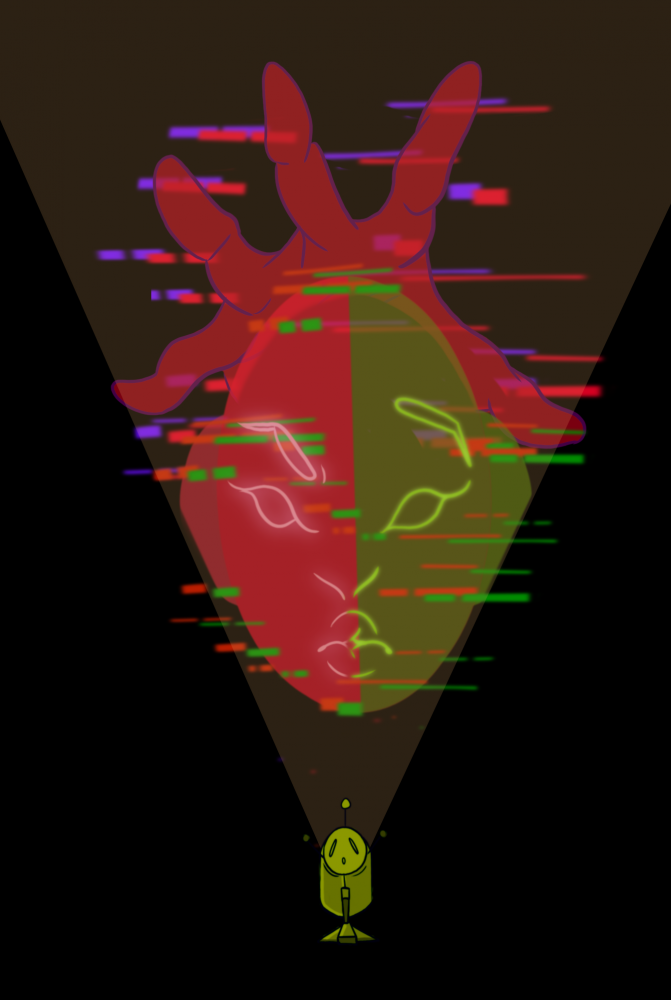The dawn of the information age gave rise to creative and astonishing predictions about the future of technology. Movies of the '80s and '90s portrayed a technology that would eventually be embedded into every aspect of life. No one knew how quickly this technology would surface or how rapid its advancement would be, but they knew that change would be exponential. Today, artificial intelligence (AI) has nearly become a way of life, prompting curiosity undoubtedly by the governments of the world as to how this automation can be utilized to govern or rule over civilians.
Similar to a scene from Jonathan Nolan's "Person of Interest" on CBS, China has managed to develop cameras that utilize AI to help their police force take down criminals. This technology is advanced enough to pick suspects out of crowded streets within minutes. While decreasing crime rates is a valid use, one starts to wonder about the ways AI could be used for nefarious purposes.
As illustrated by Paul Mozur in his New York Times article "Inside China's Dystopian Dreams: A.I., Shame, and Lots of Cameras," the new components to their surveillance equipment have brought China control over 1.4 billion civilians. Where some have associated the advancements in technology with liberation, many fear that the acts of one government demonstrate that this level of power shouldn't be so consolidated.
In light of recent events, Reporter conducted a brief survey to gauge the general public's perception of artificial intelligence.
Survey Results
Notably, it was unanimous that people believed AI to be vulnerable. Like every piece of technology, AI has its design flaws. Participants have demonstrated that the fear stems less from the operation of AI and more so from those who control it, if it can be controlled.
Another question presented on the survey inquired if the participants felt as if the government should be permitted to regulate AI. 50 percent of participants answered yes to this question. Though there seem to have been negative responses to the technology China has developed, the survey participants overall felt confident enough in the United States' government to only produce AI that can be utilized to assist in predetermined tasks.
"There is no way to design for harmful exploitation of technology," one participant with first-hand AI experience answered.
The participant went on to explain how attending a STEM school contributed to their positive outlook on technology, but made the point to say that though students can learn how to make such valuable equipment, there is not much they can do about eliminating vulnerability. People who want to take advantage of artificial intelligence and reap the benefits it has to offer are going to do so regardless of any pushback.
Another participant expressed deep concern when presented the question of what the world would be like with AI fully integrated into everyday life.
"It puts us in a vulnerable state to having information stolen or misused. If someone hacks into whatever device you’re using, it could be potentially dangerous," they answered.
To surrender that much power to technology could be threatening to safety, privacy or way of life.
What Does AI Mean for the World?
Of course, we should be able to rely on our government to use sound judgment when it comes to AI. However, history has shown us that power corrupts people.
AI could make life easy, eliminate any true effort a human puts into everyday tasks and possibly even replace us one day. This is possible and likely if regulations aren't implemented over the technology.
However, mass media's influence on the perception of AI could prove to just be paranoia. Perhaps we could coexist peacefully with artificial technology and use it for good, without tainting its purpose.
Consider this sentiment from Elon Musk, the CEO of Tesla Motors: “I’m increasingly inclined to think that there should be some regulatory oversight, maybe at the national and international level, just to make sure that we don’t do something very foolish. I mean with artificial intelligence we’re summoning the demon.”
The beginning of AI can be easily compared to opening Pandora's box. Rules were not put in place, as regulations usually require destruction or death to cause fear first. If we don't set a precedent now while AI is still in its early development, we will be forced to take on the unknown consequences down the road.








